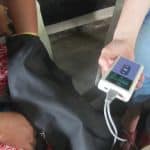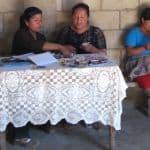Engineering Social Impact: Being a Hardware Entrepreneur is Hard … But Worth It
Lost in the sea of smartphones and brightly-colored apps is an intrepid sort of trailblazer known as the “hardware entrepreneur.” This peculiar specimen of entrepreneur is rarely seen in the wild, but they do indeed exist and their numbers are growing. As the millennial generation of designers, makers, engineers and innovators seeks to make their mark by providing solutions to the world’s most pressing challenges, designing for positive social impact will continue trending upward and hardware is leading the way.
Though often overlooked and overshadowed by their app-focused counterparts quickly coding the next “Angry Birds” that will conquer world markets seemingly overnight, the hardware entrepreneur stares into the distance and forges ahead with prototype in tow. Determined. Unflappable.
The countless line drawings, co-creative user-centric design processes and the field tests and failures involved in building a functioning prototype are just the start of the challenges they will face on their journey. Drafting an appropriate business plan, identifying the right market and establishing the mutually beneficial partnerships needed to scale are all part of the process.
The investors flush with money hoping for a fast ROI and equity stake are not banging down the doors of the hardware entrepreneurs the way they are with the Silicon Valley gurus. The manufacturing partners do not appear from the mist and mass produce overnight. Tapping into the supply chains is not easy, nor is navigating the often bumpy investment waters. Investors with patient capital are few and far between and even when an investor sees a prototype’s potential for market impact, it only begins the arduous and often time-consuming due diligence process. Meanwhile, the hardware entrepreneur is simply trying to keep the lights on.
There is nothing fast or easy about hardware innovation. Hardware is, well, hard and those pursuing such an undertaking need to be both resilient and patient. And they need help.
There is, however, a growing number of stakeholders in the development space who see the importance of hardware-led social ventures and the impact they make in emerging markets to help to close the economic inequality gap and improve the livelihood of billions struggling daily. From water filtration and sanitation, to drip irrigation techniques in water-scarce regions, to green energy technologies and affordable prosthetics and medical devices, there are countless solutions being designed to address the broad array of challenges in underserved communities. Engineering research, design and tech development/transfer are all bringing great opportunities to entrepreneurs and end-users alike, and more and more people are beginning to recognize and tap into this potential. The rise of the maker space, incubators, accelerators and hardware-led ventures around the world offer a glimpse of future trends and many are getting involved.
The American Society of Mechanical Engineers (ASME), for instance, understands the plight of the hardware entrepreneur and its annual Innovation Showcase (ISHOW) is a hardware-led social innovation competition open to entrepreneurs with a working prototype. ISHOW seeks to prepare them for the challenges they will face along their hardware journey. ISHOW events will take place in India, Kenya and the United States. Contestants are provided an opportunity to pitch their prototypes to industry experts, media and potential investors. Besides the access to the ISHOW’s design and engineering reviews by technical experts, ISHOW provides $500,000 in seed grants and in-kind services, such as investor and manufacturer matchmaking, CAD drawings/analysis, and assistance from ISHOW’s growing partner network and library of expert insights.
The mission of the hardware entrepreneur is a noble one and ISHOW is honored to be a part of their journey.
Paul Scott is a sustainability and global development expert who runs the ASME ISHOW; James Creel is a senior program manager with ASME’s Engineering for Global Development program.
Photo: The AguaPallet, an entry in last year’s ISHOW. It’s a hollow plastic pallet that can deliver aid, then be turned into a hand cart by adding a handle and a pair of wheels. Photo courtesy of ISHOW
- Categories
- Social Enterprise, Technology



